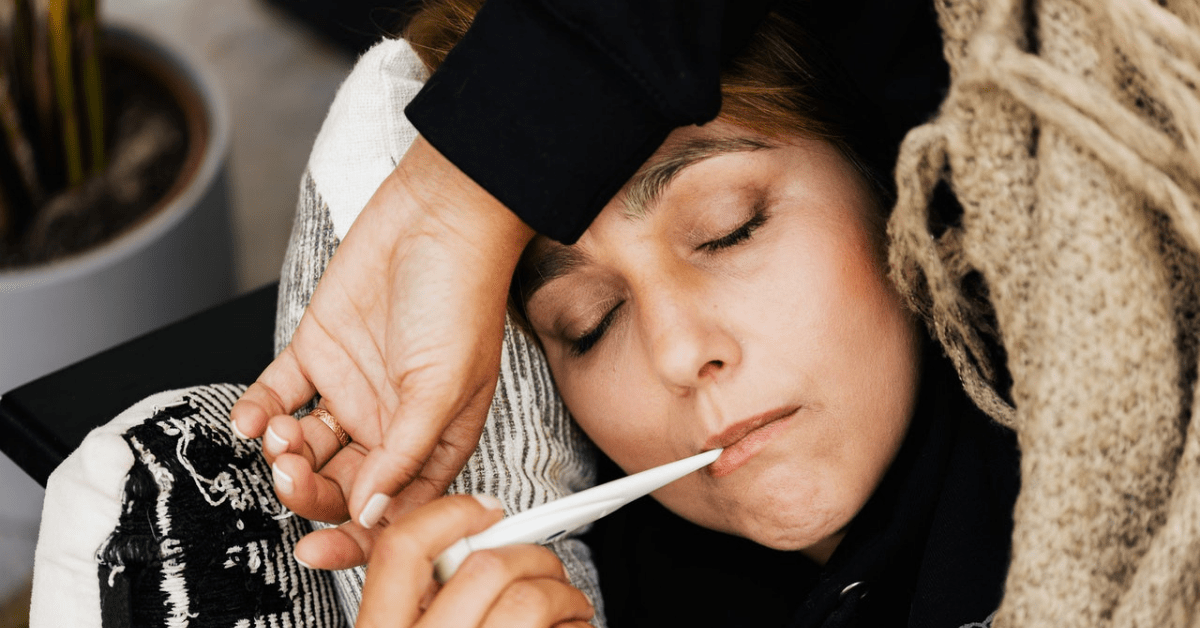Your skin is your largest organ. It serves as the first line of defense against external toxins and pathogens while protecting your blood vessels, muscles, and bones. It should come as no surprise that your skin’s health and the health of your immune system are closely related. When your immune system is weak, your body’s defenses are limited, allowing toxins, pathogens, and germs into your system. This can wreak havoc on your skin.
Have you ever suffered from lack of sleep or fatigue only to have a cold sore pop up on your lip? This is a prime example of how your immune system affects your skin’s health. We know those cold sore sufferers were exposed to the virus at some point in their lives, but that virus can get a bit angry when your primary defense system is running on fumes.
Let’s take a closer look at how your immune system and skin health are related (and what you can do to give yourself an immune system boost).
A Formal Introduction to Your Complex Immune System
Most people only think about their immune system when they have a cold or the flu. But the immune system works all day, every day. It is a very complex system made up of cells, proteins, and antibodies that protect your entire body. The immune system can detect the difference between your body’s natural cells and foreign cells, destroying anything that could possibly be harmful.
The skin immune system is sometimes called SALT. This stands for skin-associated lymphoid tissue which is made up of your lymphoid organs such as your spleen as well as your lymph nodes. Different layers of your skin contain different immune system cells. For example, the epidermis, or the outermost layer of skin, contains epidermal dendritic cells and keratinocytes (skin cells). The dermis layer contains dermal dendritic cells, lymphocytes: T cells, B cells, natural killer cells, and mast cells.
B-cells are like the guy in the watchtower looking for threats. They keep an eye out for pathogens and send alerts throughout your body if they detect one. T-cells, on the other hand, receive those signals and coordinate the immune response. The natural killer cells destroy infected cells and mast cells are in a separate group of cells that play an important role in case of an allergy. Mast cells also heal wounds.
No, there will not be a biology quiz at the end of the article, but it is important to know a little bit about this diverse collection of cells that make up your skin’s immune system. The more you know, the better you can protect it.
What a Weak Immune System Means for Your Skin
If your immune system is weak, you may experience more than just a common cold. When your immune function experiences impairment it can wreak havoc on your skin. Since your skin is the first mode of defense against pathogens, it really needs to be working at full strength. A weakened immune system can lead to inflammation of the skin. Your face may become puffy, or your lymph nodes may swell. This, of course, impacts your overall appearance.
If you develop any cuts or sores, your skin might take longer to heal with a weak immune system. Your body is fighting off infected cells, spending precious resources getting you well. When you’re feeling healthy, your immune system sends a flood of macrophages to the trauma site on your skin. This promotes inflammation, blood flow, and skin healing in an expedited manner. Macrophage transit may be slower as your body fights infection.
This also means you may be prone to skin irritations such as cold sores and cysts more often when you’re sick than when you are feeling healthy and strong.
A weak immune system may also jumpstart your immune response by sending it into overdrive. So if you find your eyes watering, nose running, or skin itching far more than usual, it could be a hypersensitive immune response.
Unfortunately, your skin is prone to breakouts when your immune system is down. Remember, it is busy fighting off the new pathogens. It may forget to destroy the acne-causing bacteria during your illness.
Signs Your Skin May Be Malnourished
Think your immune system may be neglecting your skin? Here are a few signs your skin may be malnourished and need extra attention while you fight off illness:
- Dry, flaky, dehydrated skin
- Dull, faded complexion
- Reduced skin elasticity
- Inflammation
- Excessive itchiness
- Allergic reaction
- Uneven skin tone
- Frequent infection or irritation
What You Need for an Immune System Boost
There are many things you can do to give your immune system a boost that will ultimately benefit your skin health. One of the most important things you can do is practice good hand and skin hygiene. You will want to keep your skin as germ-free as possible by cleansing the skin regularly and washing your hands.
Do your best to get a proper amount of sleep each evening. Try setting a bedtime schedule and sticking to it. The skin repairs itself while you are asleep, and your immune function recharges. If you routinely get less sleep than recommended, your immune system can weaken and increase your risk of getting sick.
You will also want to eat plenty of fresh fruits and vegetables. Fruits such as kiwi and oranges are jam-packed with Vitamin C, a nutrient essential to immune system function. Don’t forget foods rich in zinc and Vitamin A too. Eating a well-balanced and healthy diet will promote all body systems to function smoothly and keep your immune system strong.
It goes without saying you need to drink plenty of water. Your skin craves hydration and your body requires water to complete the simplest of functions. Also, water helps flush out toxins from the body, giving them less of a chance to infect you.
In addition to eating healthy, getting sufficient exercise is another positive tactic you can engage for an immune system boost. Find a workout you enjoy doing. This will help keep your stress levels at bay as well. Our immune systems can weaken when we’re under negative physical or emotional stress.
Another way to combat stress and therefore keep the immune system calm is to practice some self-care. Whether it is a five-minute meditation or listening to your favorite song on repeat, try and find small ways you can take time out for yourself.
While these recommendations are applicable to all health and wellness efforts, they are especially important for immune system health.
How to Have Healthier Skin
So, you’re following through on all the methods to boost your immune system, right? You may be wondering what you can do to ensure you have healthier skin.
- Use natural products. Instead of harsh chemicals that can compromise your skin’s outermost layers, use skin products that are 100% natural.
- Consider taking vitamins. If you do not get enough vitamins in your daily diet, talk to your doctor about taking individual vitamins.
- Limit direct sun exposure. We all know that the sun damages the skin. However, if you get a serious sunburn, your immune system goes into overdrive to repair the damaged skin. This can make you more susceptible to colds or other illnesses.
- Keep your skin hydrated by drinking plenty of water.
- Use clean towels to dry off wet skin to prevent bacteria buildup
- Avoid picking at pimples, cysts, boils, or sores. You do not want to make the irritated area worse, nor do you want to get an infection.
- Keep your nails clean to avoid bacteria buildup under the nail that can spread to the skin.
- Treat yourself. You can indulge in self-care while giving your skin its own holiday by taking a spa day or getting a facial.
Learn About Different Products
There are plenty of products on the market that can support your skin’s health. If you want to learn more about how to boost your immunity and support your skin’s health, book a consultation with First Impressions Rejuvenation Clinic. The compassionate and knowledgeable practitioners would be happy to discuss your skin care needs, the clinic’s offerings, and tips on how to love the skin you are in.
If you do a little research and learn about different supplements and topical skin care products, you may find the perfect combination that keeps your immune system strong and your skin radiant.
*********************
You may have experienced the frustration of living a healthy lifestyle with a balanced diet and daily exercise without seeing the fat in certain areas melt away. If this sounds familiar, Coolsculpting® results may be the answer to your prayers! Learn more when you download our FREE ebook, The #1 Secret about Fat Cells.

